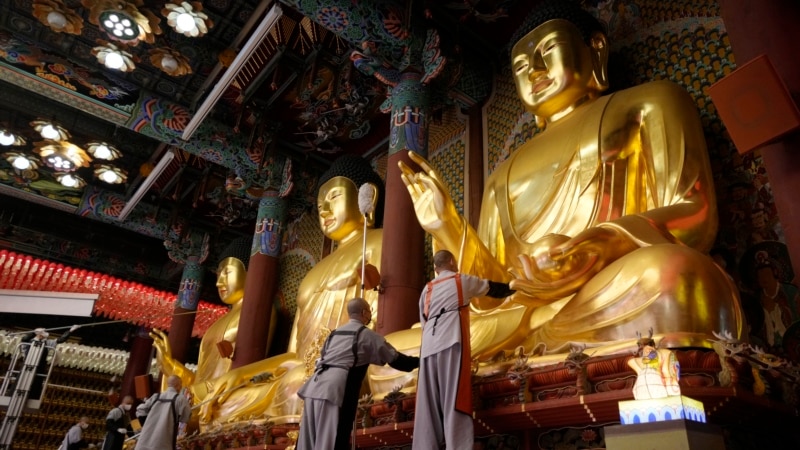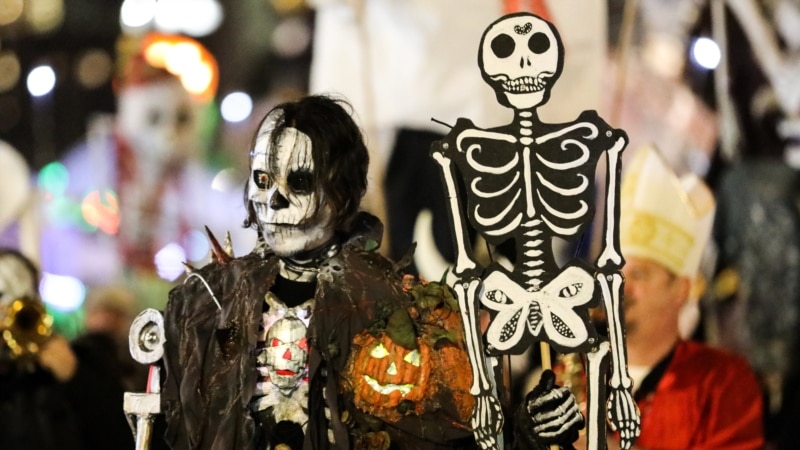
In Asia, Buddha’s Birthday Is Celebrated in Different Ways
In ancient India, the term “Buddha” was used to describe someone who has awakened from ignorance and gained freedom from suffering. Buddha means the “ enlightened one.”
Today, the names Buddha, Siddhartha, Shakyamuni, Gautama or Phật are used to describe a historical person born around 2,500 years ago. His followers started the religion of Buddhism, which is widely practiced in many Asian countries.
Some countries observe his birthday on the fourth month of the Buddhist calendar, which falls on May 15 this year. Others celebrate it on the first full moon of May, which falls on May 23.
Buddha’s birth and life
Buddha, or Prince Siddhartha, was born in Lumbini, an area at the border of what is today India and Nepal. His mother, Maya, was the wife of Suddhodana, king of the Shakya families.
Ancient storytellers said that Queen Maya dreamed of a white elephant entering her womb before giving birth. The child took seven steps soon after he was born and received a cleansing bath from the gods, or dragon kings, depending on the country or culture where the story is told.
Suddhodana tried to keep his son from knowledge of pain and suffering. Before long, the prince witnessed and learned of sickness, old age, death and the impermanence of life. At the age of 35, Siddhartha was enlightened and became known as the Buddha.
Followers use the time of Buddha’s birthday to celebrate and to reflect on his teachings and their faith. In many parts of Asia, the day marks the birth, the enlightenment and passing of the Buddha.
In most Asian cultures, Buddhists go to their local religious centers, or temples, and take part in chanting , meditation and activities all day. Families decorate their homes with lights called lanterns and gather for big meals.
Koreas
Buddha’s birthday is a national holiday in South Korea.
The big celebration in the capital city of Seoul is the lotus lantern festival called Yeondeunghoe. It is a parade of thousands of colorful, lighted paper lanterns often shaped like lotus flowers.
On Buddha’s birthday, many temples provide free meals and tea to all visitors. Other festivities include traditional games and performing arts to mark the light of Buddha’s teachings.
While Buddha’s birthday is not an official holiday in North Korea, it has been observed in Buddhist temples there since 1988.
In 2018, Buddhist clergy in North and South Korea held joint services when tensions between their governments eased. But such exchange programs have been halted in the past few years because of North Korea’s nuclear program.
China
In China, Buddhists perform a bathing ceremony that involves pouring holy water over a statue of the infant Buddha.
The statue has one right finger pointing up to the sky and one left finger pointing down to the earth. This means that with his birth, Buddha announced that he would have no more rebirths, and the dragons of heaven baptized him with pure water.
Japan
In Japan, Buddha’s birthday is observed on April 8 and celebrated in Buddhist temples as Hana Matsuri, which means flower festival.
On this day, a small “flower hall” is set up on the temple grounds and decorated with colorful flowers. Followers pour sweet tea on the head of a statue of the baby Buddha in a bowl of water. And a cleric performs the Kambutsu-e ceremony recreating Buddha’s birth in the garden of Lumbini.
South and Southeast Asia
Countries in South and Southeast Asia celebrate Buddha’s birthday on the full moon of the second lunar month known as Vesakha or Vaisakha.
In India and Nepal, sweet rice porridge is served on this day to recall Sujata, a young woman who offered the Buddha a bowl of milk porridge.
In Sri Lanka, celebrants decorate homes and streets with candles and lanterns. They sing songs, burn incense and tell stories about Buddha’s life.
In Vietnam, Buddha’s birthday is still a popular festival, but no longer a public holiday. Between 1958 and 1975, in what was formerly South Vietnam, it was a public holiday.
In Malaysia, China and many other countries, animals and birds are also set free on Buddha’s birthday because people believe it is good karma .
I’m Gena Bennett.
Deepa Bharath reported this story for Associated Press. Hai Do adapted it for VOA Learning English.
Words in This Story
enlightened –adj. having reached an especially high level of knowledge
womb –n. the organ in which babies grow in their mother
reflect –v. to think deeply on some subject
chant –v. to repeat words usually as part of a traditional ceremony
meditation –n. to quietly think on a subject aiming at greater understanding and peace of mind
decorate –v. to put pleasant looking things around a place to make it more attractive
baptize –v . a religious ceremony in which a person has water put on them or is completely put under the water as a way to show spiritual rebirth
porridge –n. a thick soup made from grains
incense –n. a substance that gives a pleasant smell when burned
karma –n. (religious) an idea that deeds done in this life will be rewarded or punished in the next life based on their value
We want to hear from you.
Our comment policy is here .
Share this article:
This article uses material from the VOA Learning English article, and is in public domain. Images and videos are available under their respective licenses.


